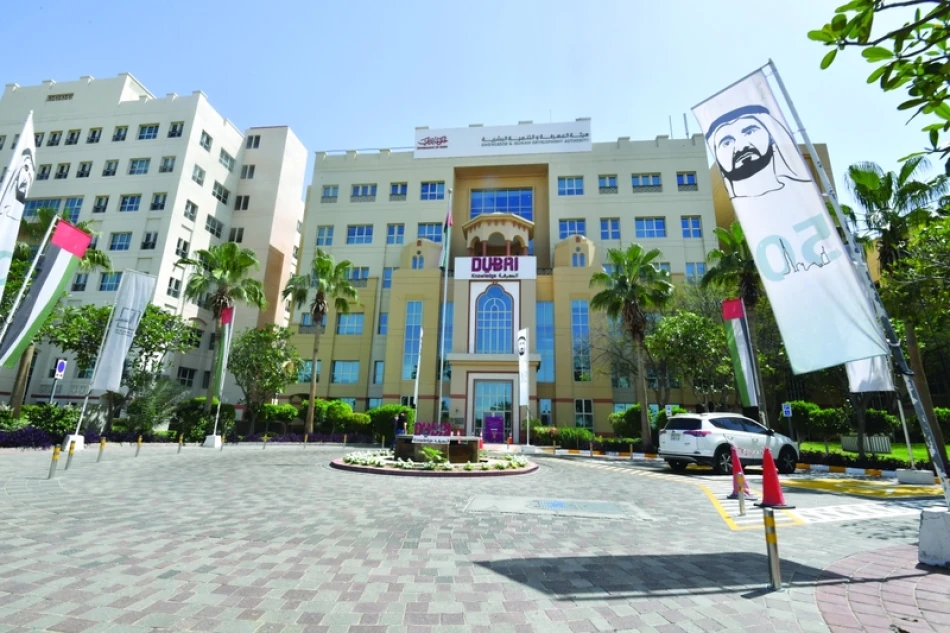
Dubai Private Schools Dismiss Educators for 36 Serious Violations
Dubai Cracks Down on Private Education: Zero-Tolerance Policy Targets 36 Serious Violations
Dubai's Knowledge and Human Development Authority has introduced sweeping reforms that could reshape the emirate's private education sector, establishing 36 violations that trigger immediate dismissal for teachers, administrators, and educational leaders. This zero-tolerance approach signals Dubai's determination to maintain its position as a regional education hub while addressing growing concerns about professional standards in private schools.
Immediate Dismissal: No Second Chances for Serious Violations
The new policy represents a significant departure from traditional disciplinary approaches. Educational staff who commit any of the 36 designated violations face immediate exclusion from Dubai's private education system, with their names added to a blacklist that prevents future employment at any educational institution in the emirate.
The Dubai Knowledge and Human Development Authority emphasized that institutions must apply disciplinary policies consistently, requiring sufficient evidence before taking action. This systematic approach reflects Dubai's broader strategy to professionalize its education sector and compete with established international education destinations like Singapore and Switzerland.
Nine Categories of Serious Misconduct
The violations span nine critical areas, each addressing specific risks to student safety and institutional integrity. Crimes against persons include human trafficking, sexual crimes, physical assault, domestic violence, harassment, and murder—offenses that directly threaten student welfare.
Security and public safety violations encompass state security crimes, illegal weapons possession, cybercrime, drug-related offenses, and appearing at work under the influence of alcohol or drugs. These provisions reflect Dubai's zero-tolerance approach to substance abuse and security threats.
Property and financial crimes target fraud, theft, bribery, document forgery, and deliberate property damage. This category addresses the financial integrity concerns that have plagued some private education markets globally.
Child Protection Takes Center Stage
The policy places particular emphasis on child protection, establishing five specific violations that reflect international best practices. These include inappropriate relationships with minors, failure to report known child abuse cases, and violations of institutional safety standards.
This focus aligns with global trends in education regulation, where jurisdictions like Australia and the UK have implemented similar comprehensive child protection frameworks. Dubai's approach suggests the emirate is positioning itself as a leader in educational safeguarding standards within the Middle East region.
Professional Integrity and Technology Misuse
Three violations address professional integrity, including falsifying academic credentials and deliberately disclosing confidential information. The policy also tackles modern challenges, prohibiting repeated unauthorized access to inappropriate online materials and violations of data protection laws.
The inclusion of technology-related violations demonstrates Dubai's recognition of evolving workplace challenges, particularly relevant as educational institutions increasingly rely on digital platforms and artificial intelligence tools.
Secondary Violations: A Graduated Response System
Beyond the 36 immediate dismissal violations, the authority has identified 17 secondary violations that warrant verbal or written warnings for first-time offenses. These include inappropriate social media content, plagiarism, AI misuse, and culturally insensitive behavior.
This graduated approach suggests Dubai is balancing strict standards with practical workforce management, recognizing that some violations may stem from cultural misunderstandings or professional inexperience rather than malicious intent.
Cultural Sensitivity Requirements
Several violations specifically address cultural sensitivity, requiring respect for Emirati customs, religious symbols, and national occasions. This reflects Dubai's unique position as an international education hub that must balance global standards with local values and traditions.
Market Implications and Competitive Positioning
For Dubai's education sector, these regulations represent both challenge and opportunity. Private schools may face initial staffing pressures as they implement stricter screening procedures, potentially increasing recruitment costs and timelines.
However, the policy could strengthen Dubai's competitive position against other international education destinations. Parents increasingly prioritize safety and professional standards when selecting schools, particularly in the post-pandemic environment where education quality scrutiny has intensified.
The comprehensive nature of these regulations suggests Dubai is preparing for continued growth in its education sector, with the emirate targeting increased international student enrollment and positioning itself as a regional education hub comparable to Singapore or Hong Kong.
Implementation Challenges and Industry Response
Educational institutions now face the complex task of updating their policies and training programs to align with these new standards. The requirement for regular policy reviews and staff awareness programs will likely increase operational costs, particularly for smaller private schools operating on tight margins.
The policy's success will largely depend on consistent enforcement and the authority's ability to support institutions during the transition period. Clear guidance on evidence standards and investigation procedures will be crucial to prevent arbitrary dismissals while maintaining the policy's deterrent effect.
Most Viewed News

 Sara Khaled
Sara Khaled






